How I Ran a Sub-3 Hour Marathon Without a Long Run
Two years of short runs, long walks, and consistent hybrid training
Earlier this year, I ran a 2:58-hour marathon in Sydney. This was despite never having run more than 23 km prior to the race. Here’s how I was able to progress to this point over the course of two years.
My regular running began when I moved to Sydney in June 2023 and joined a run club. Prior to that, I was running around 6.9 km a week and was able to run 5 km in about 20–22 minutes.
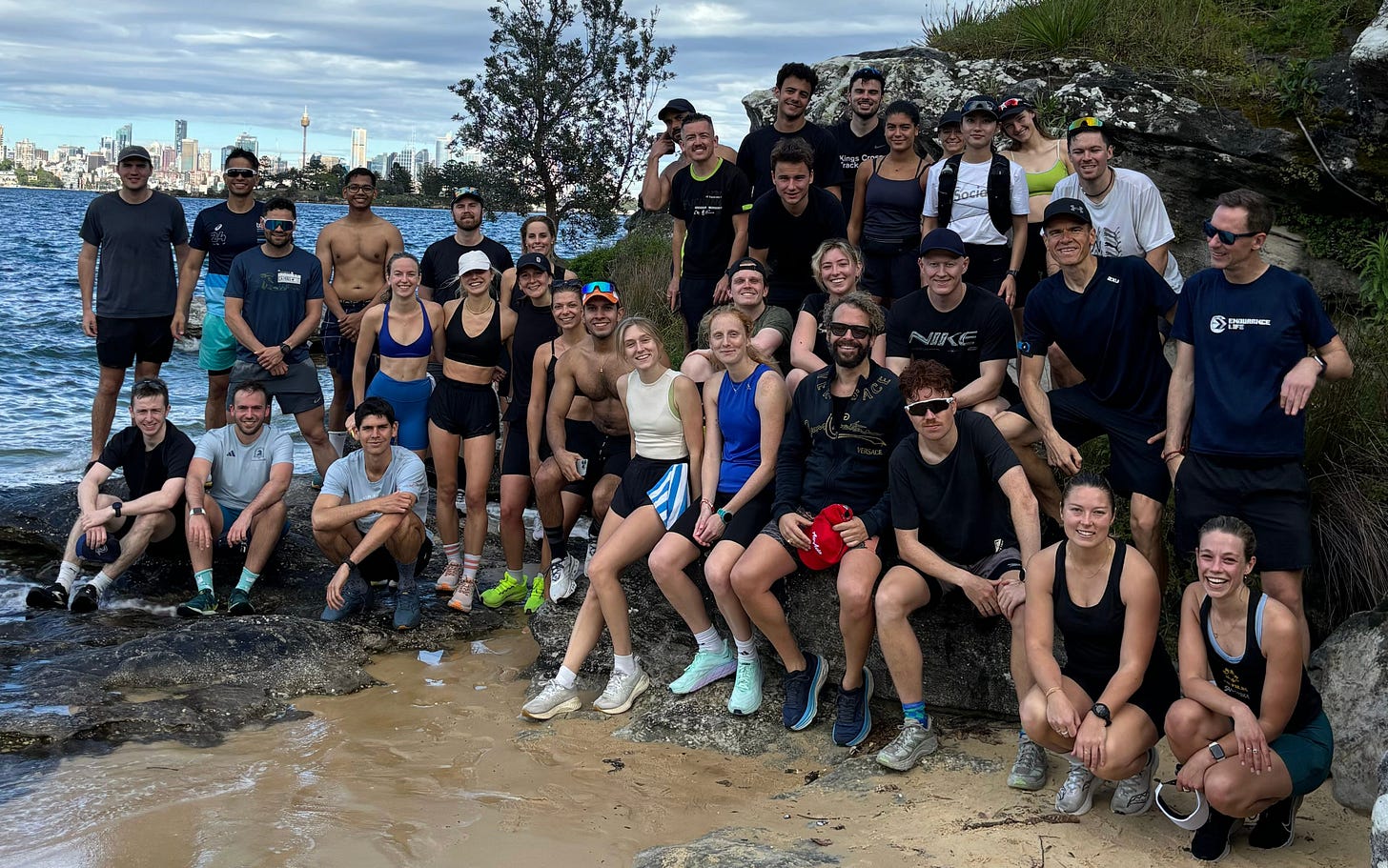
I was able to quickly add volume after initially joining the run club. My training increased to 30 km a week over the first two months and hit 70 km for the first time just nine weeks after starting with the group. This initial jump from under 10 km of weekly volume to 40 km was probably the hardest part of what would become a two-year training block.
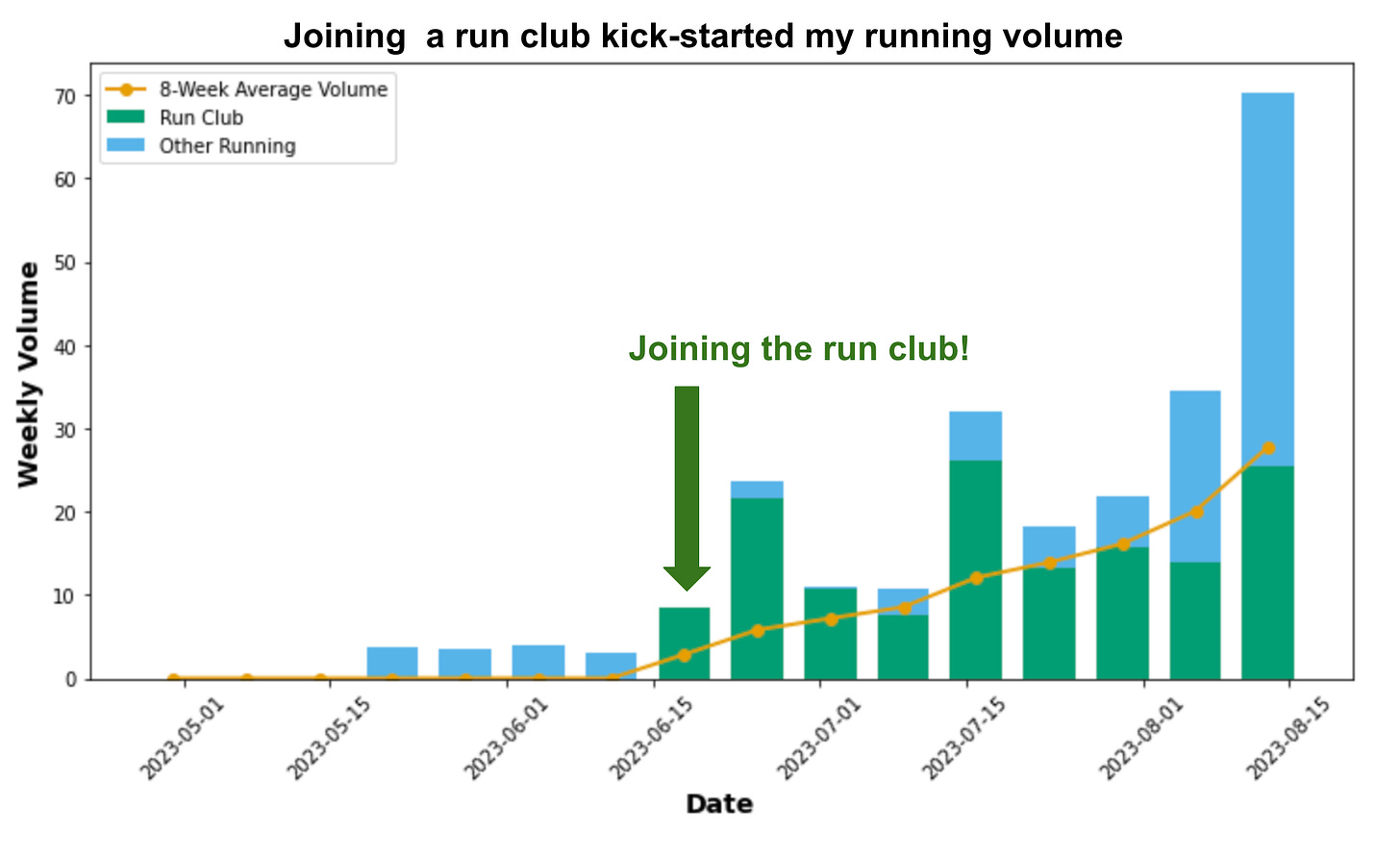
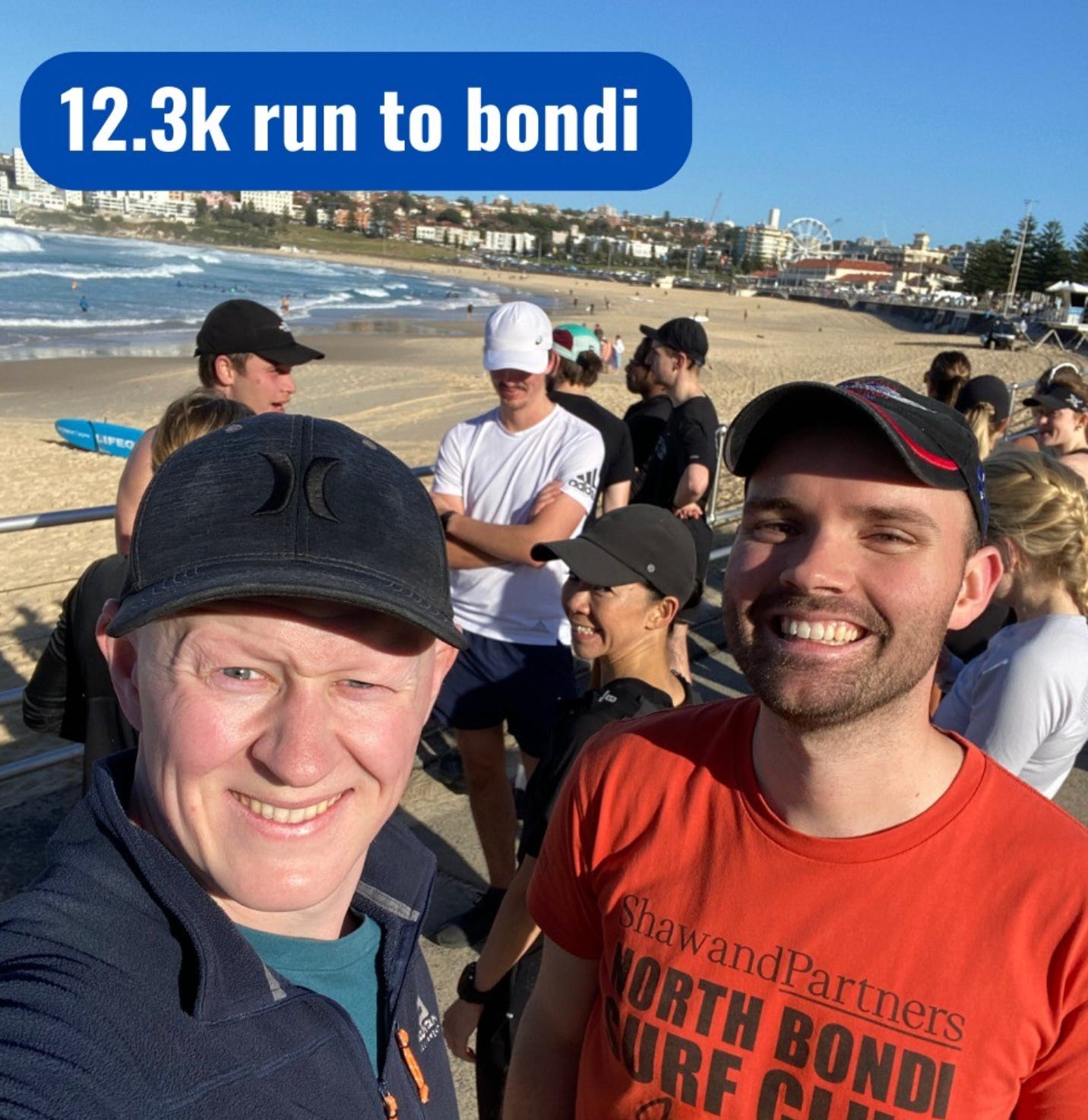
I continued to see steady increases in weekly volume over the next 18 months, peaking at 115 km in a single week. Average volume for the two-year block leading to the marathon was 59 km per week.
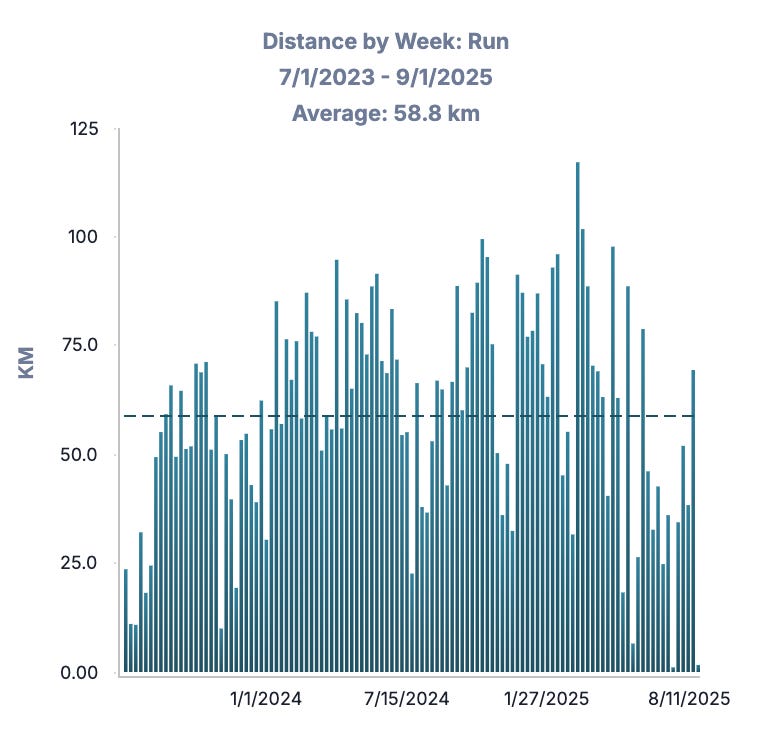
In addition to running about an hour a day, I also did a lot of walking and some strength training. Walking was my main activity at about 1.5 hours a day. I strength trained roughly two to three times per week. Muscle mass increased during this time, weight remained fairly stable, body fat decreased slightly.
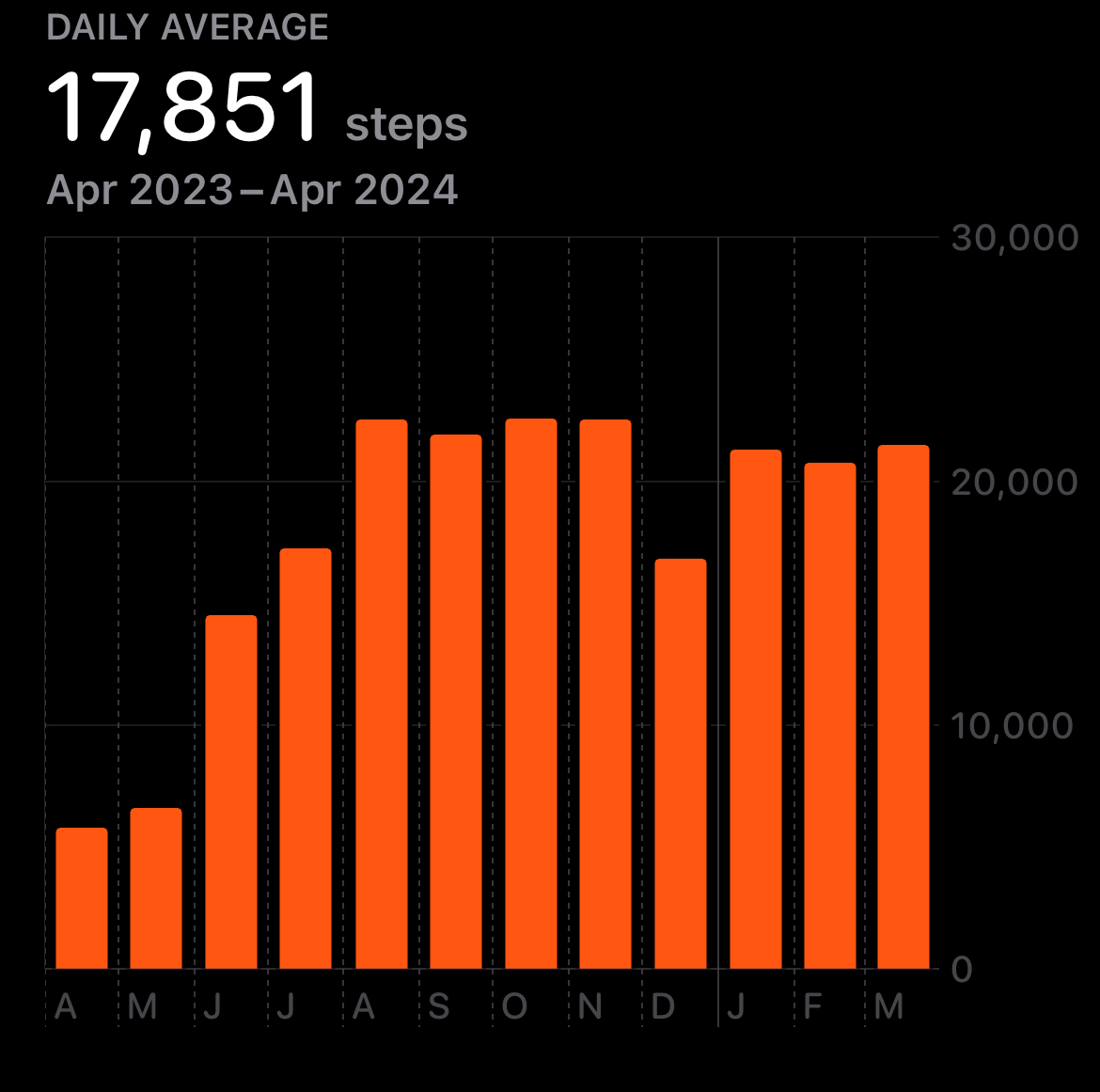
I very rarely did long runs. Prior to the marathon, I had never run more than 23 km in a single session. In the three months leading up to the race, my longest runs were a 14 km race (3:57 min/km) and a 23 km time-on-feet practice run (6:45 min/km) two weeks before the marathon.

I saw steady improvements in pace across all intensity zones. Zone 2 pace improved from around 5:45 min/km to about 5:00 min/km, and threshold pace improved from around 5:00 min/km to 4:00 min/km.
Zone 1 was my dominant training zone. I accumulated 340 hours of training volume in the year leading up to the marathon—76% of it at Zone 2 or lower, and only 7% at Zone 4 or higher (mostly from races or the weekly track session).
I ran a 14 km race at 3:53 min/km three weeks before the marathon, which gave me confidence that I could hold sub-3-hour marathon pace.

I woke up as late as possible on marathon day to maximize sleep and reduce disruptions to my normal schedule. I got up at 5:35 a.m. for a 6:31 a.m. start and arrived at the start line just as my group was leaving. I skipped breakfast since a big meal felt like too much of an unknown. I took one gel on the train to the start line and six more during the race. My energy levels felt great throughout—there was no sense of hitting a wall or bonking.
My pace was eventually limited by muscular tightness. I felt great aerobically the whole way, but around the 30 km mark I noticed subtle pain in my hamstrings and calves. This limited my ability to push, especially on the downhills. Despite this I was still able to hold on for a sub-3 hour marathon!
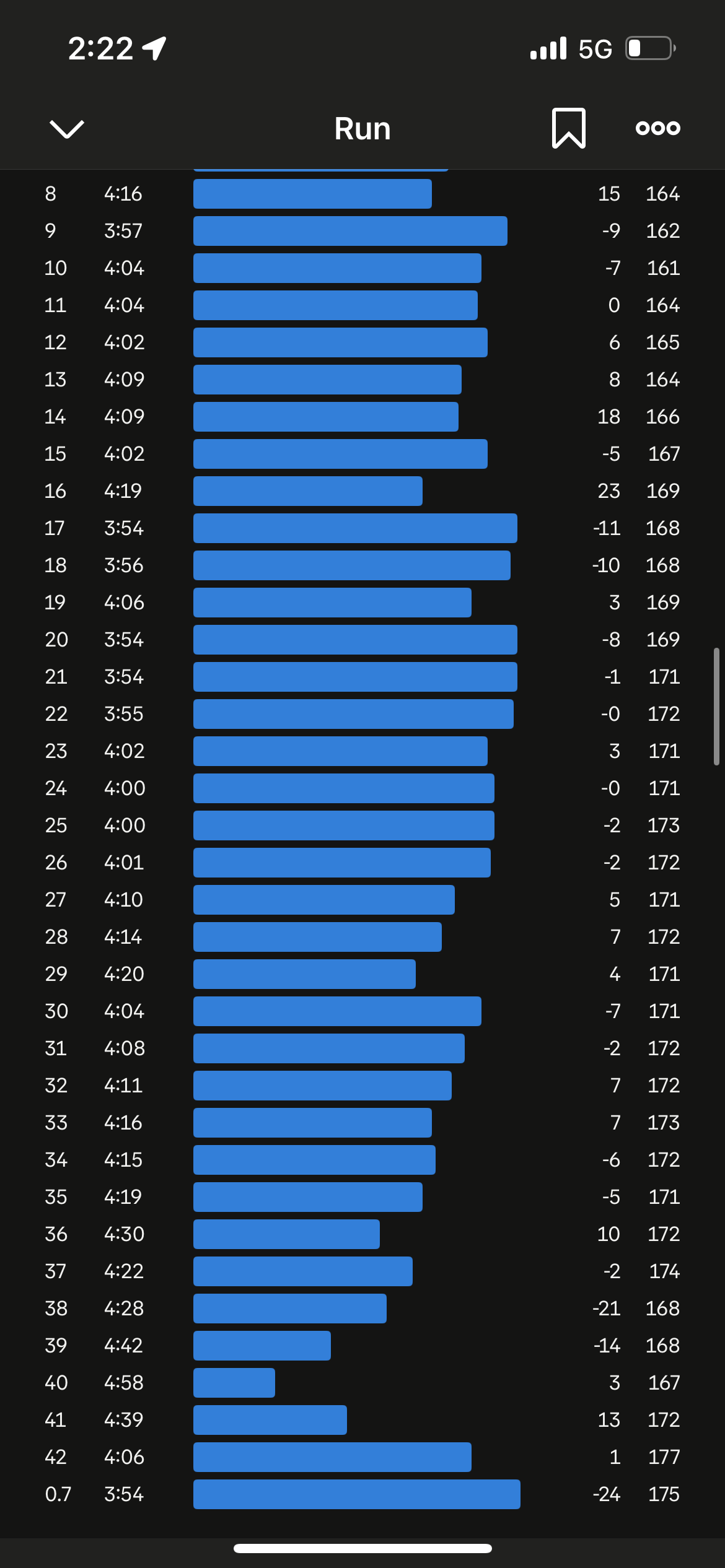
I’m now in an off-season and am back to muscle-building mode, while also trying to gain proficiency in other endurance activities like swimming and rowing.
I believe that more cross-training will help me to build an even bigger aerobic engine for next year!


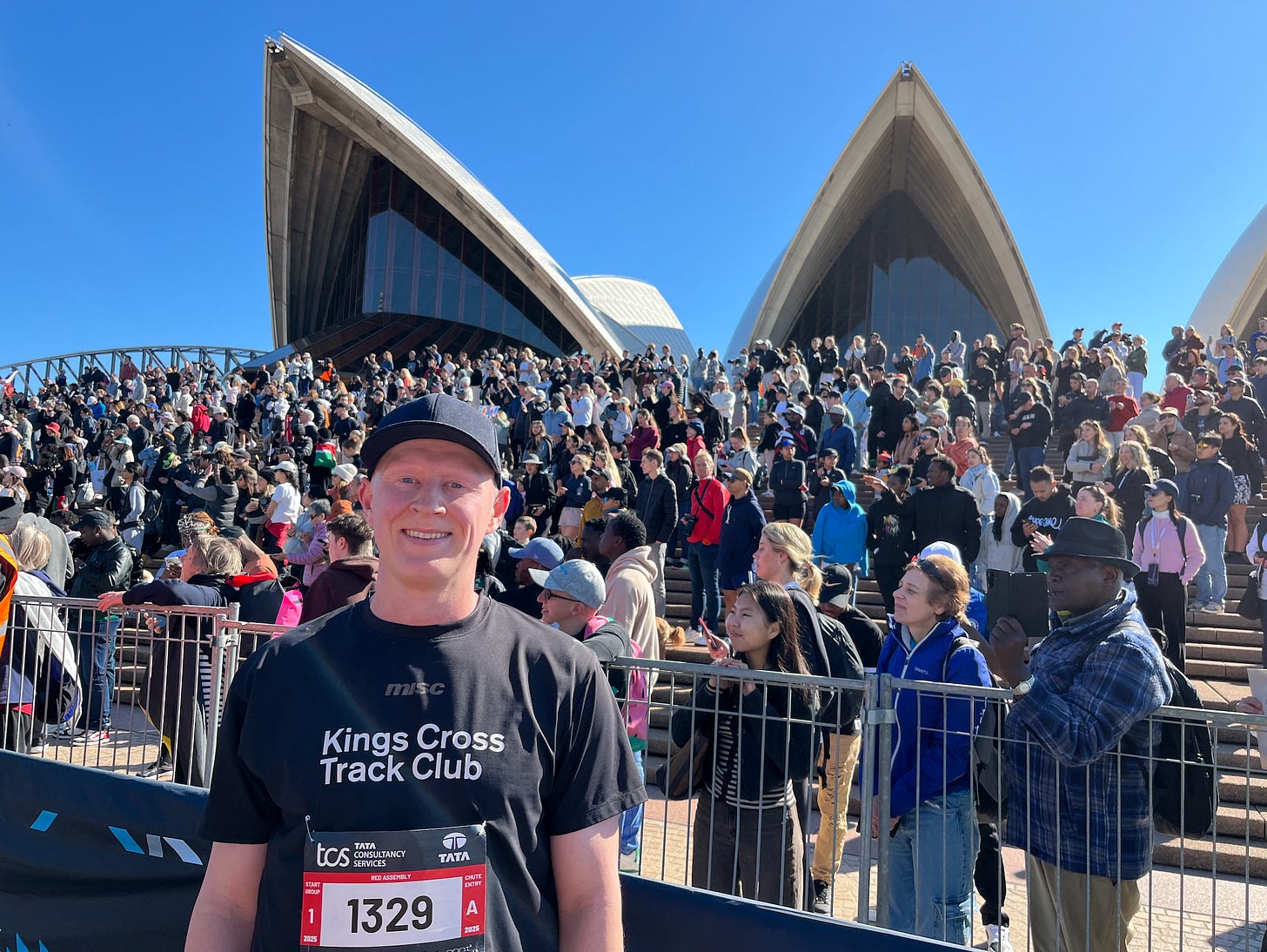
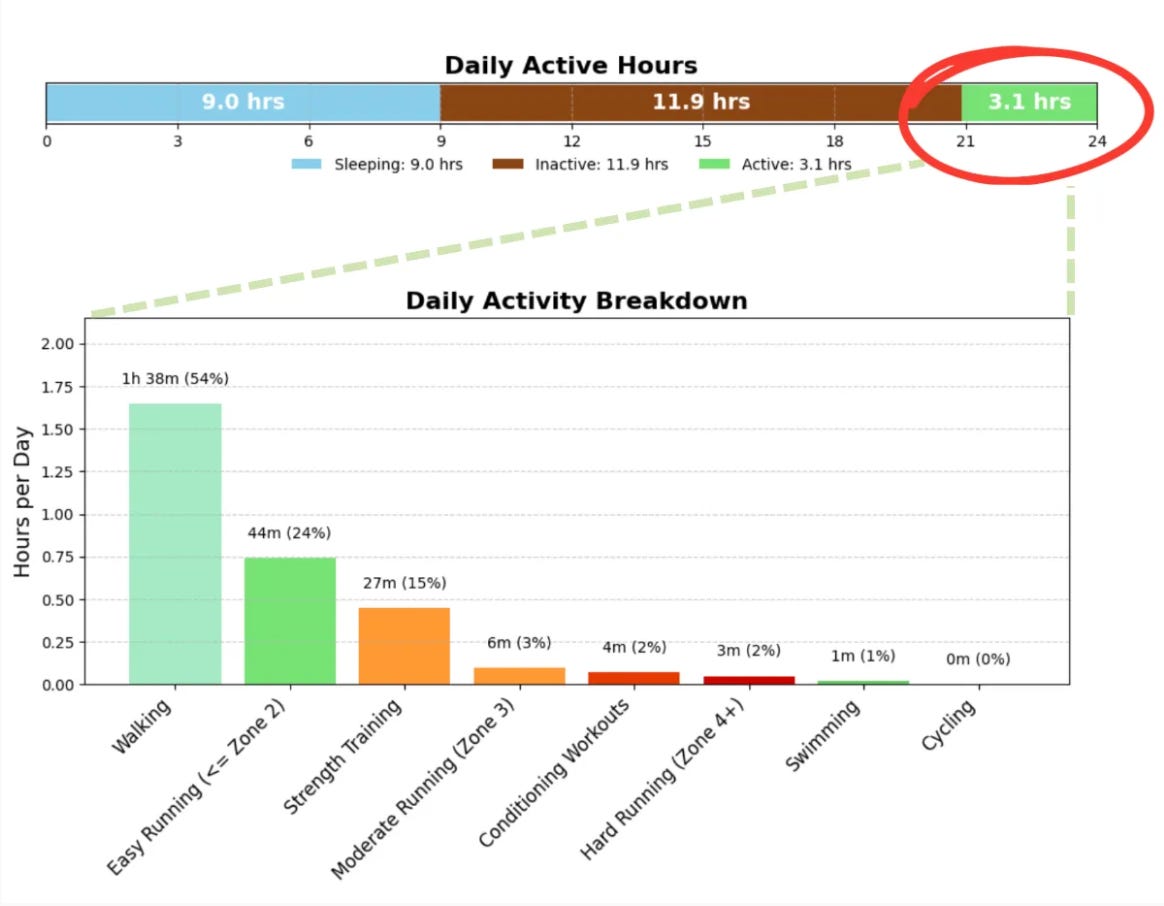
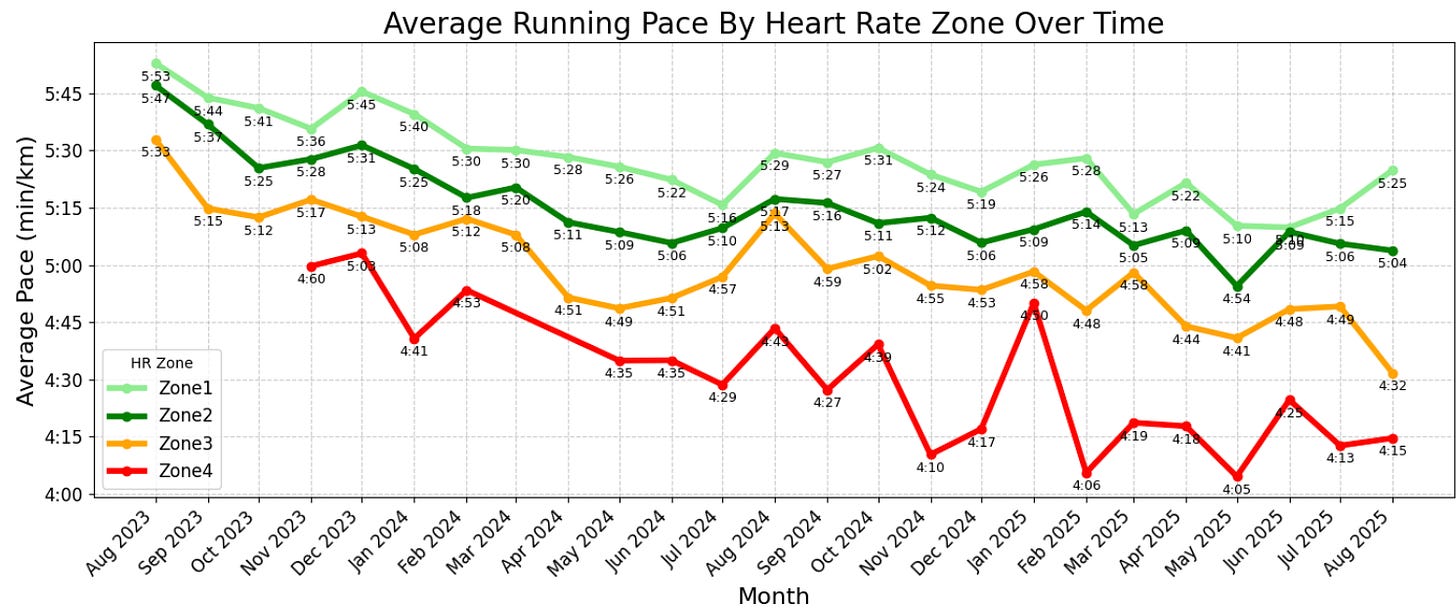
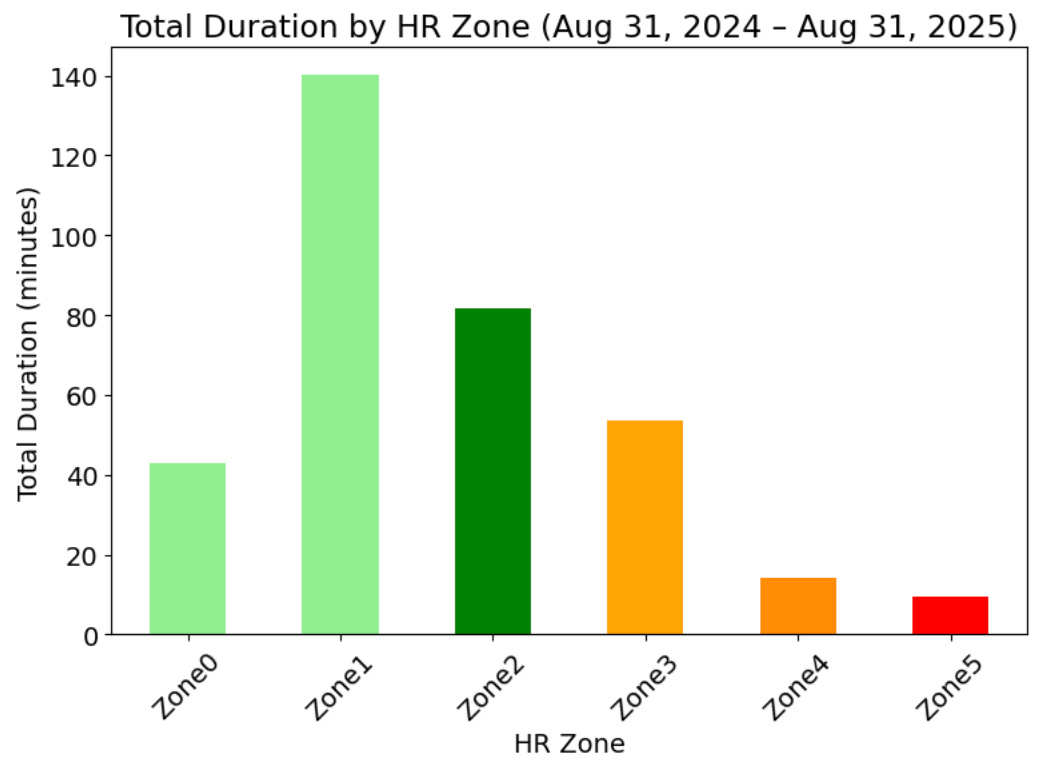
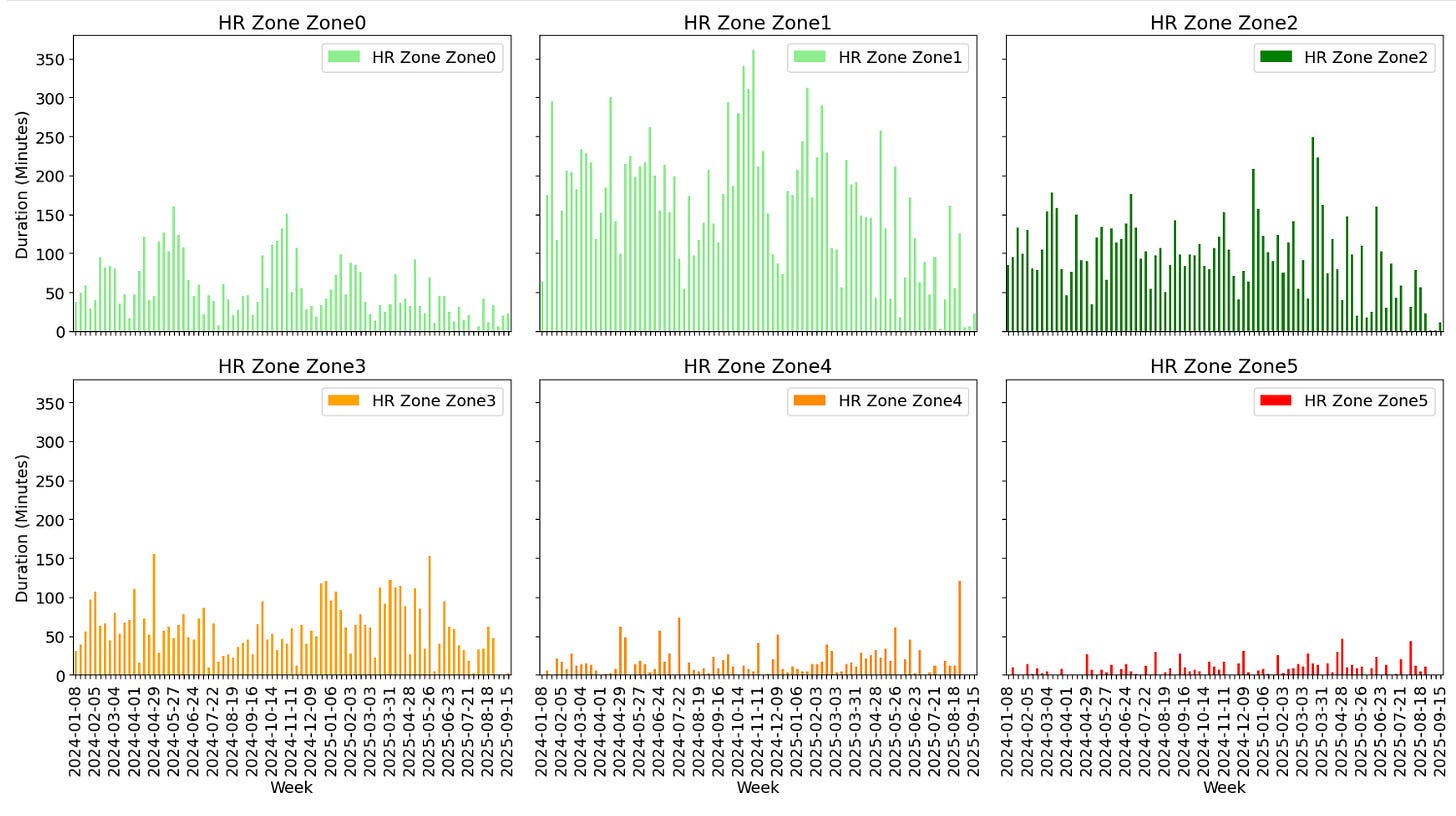
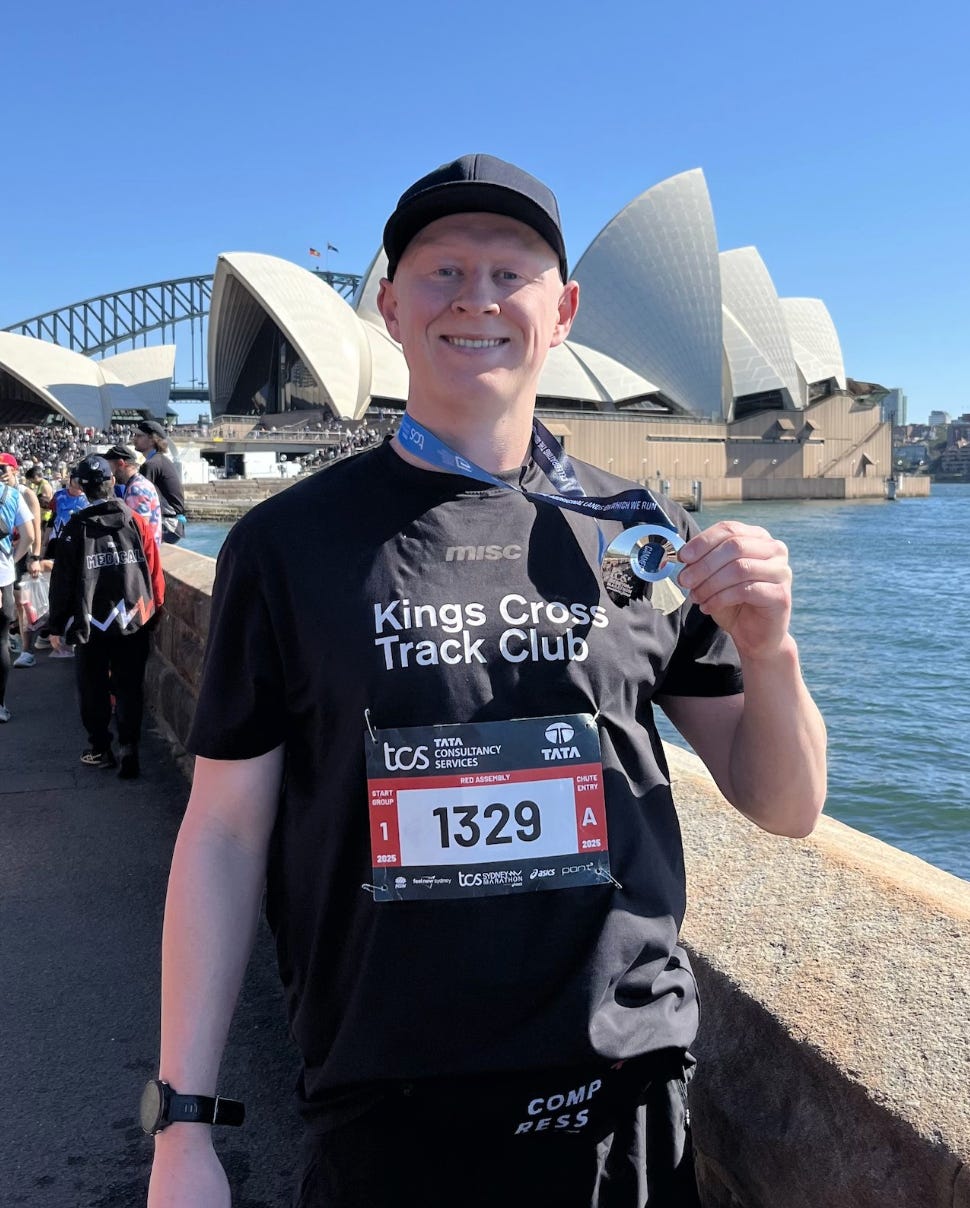
Super interesting! Congrats! Would you share your hr bpm ranges for z1 and z2? I wanna compare with mine
Congrats on the sub 3 done the hard way, a lot left in the tank if you do more specific work, and that's evident by the drop off after 30k wh oh was always going to happen with lack of long runs in training. Well done, great effort 🙏